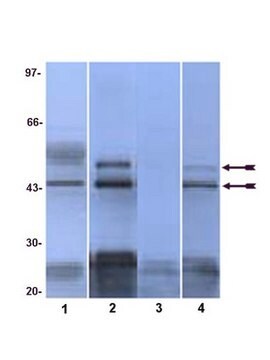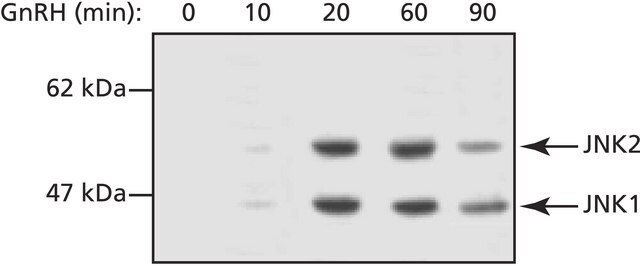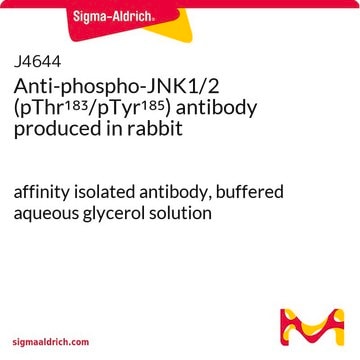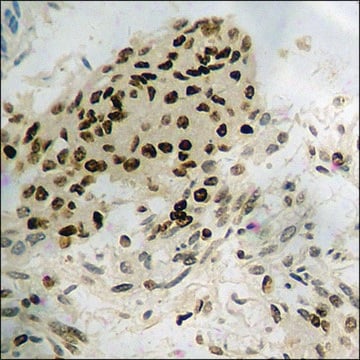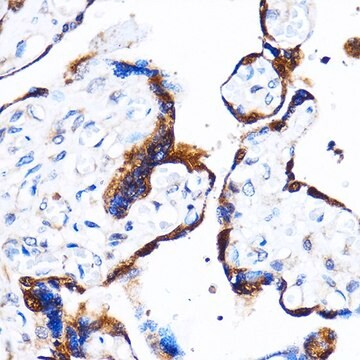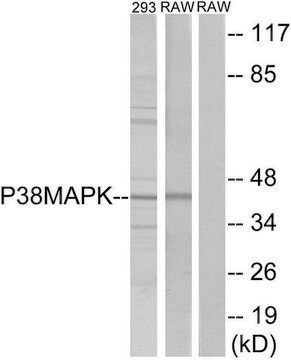SAB4200176
Anti-JNK antibody, Mouse monoclonal
clone 1C2, purified from hybridoma cell culture
Synonyme(s) :
Anti-JNK-46, Anti-JNK1, Anti-JNK1A2, Anti-JNK21B1/2, Anti-JUN N-terminal kinase, Anti-MAP kinase 8, Anti-MAPK8, Anti-PRKM8, Anti-SAPK1, Anti-stress-activated protein kinase 1
About This Item
Produits recommandés
Source biologique
mouse
Conjugué
unconjugated
Forme d'anticorps
purified immunoglobulin
Type de produit anticorps
primary antibodies
Clone
1C2, monoclonal
Poids mol.
antigen ~43 kDa
Espèces réactives
mouse, rat, human
Concentration
~1.0 mg/mL
Technique(s)
western blot: 1-2 μg/mL using using whole extracts of mouse NIH-3T3 cells
Isotype
IgG2a
Numéro d'accès UniProt
Conditions d'expédition
dry ice
Température de stockage
−20°C
Modification post-traductionnelle de la cible
unmodified
Informations sur le gène
human ... MAPK8(5599)
mouse ... Mapk8(26419)
rat ... Mapk8(116554)
Description générale
Application
Actions biochimiques/physiologiques
Monoclonal Anti-JNK antibody is specific for human, mouse and rat JNK1 (43 kDa) and/or JNK2 (55 kDa).
Forme physique
Clause de non-responsabilité
Vous ne trouvez pas le bon produit ?
Essayez notre Outil de sélection de produits.
Code de la classe de stockage
10 - Combustible liquids
Point d'éclair (°F)
Not applicable
Point d'éclair (°C)
Not applicable
Certificats d'analyse (COA)
Recherchez un Certificats d'analyse (COA) en saisissant le numéro de lot du produit. Les numéros de lot figurent sur l'étiquette du produit après les mots "Lot" ou "Batch".
Déjà en possession de ce produit ?
Retrouvez la documentation relative aux produits que vous avez récemment achetés dans la Bibliothèque de documents.
Les clients ont également consulté
Notre équipe de scientifiques dispose d'une expérience dans tous les secteurs de la recherche, notamment en sciences de la vie, science des matériaux, synthèse chimique, chromatographie, analyse et dans de nombreux autres domaines..
Contacter notre Service technique